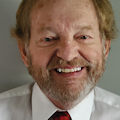Essential first steps to dental success
During my 40-year career, I was privileged to care for more than 20,000 patients. I wish I could remember every individual and his or her unique dental history, but my memory isn’t up to the challenge, then or now. While in practice, I compensated for my recollection deficiencies by arriving at our office by 6:40 each morning to prepare for our 7:30 staff meeting, and I studied the records of everyone we’d see that day. Including hygiene exams, there were usually about 30 patients per day.
As much as I would have loved to delegate this job, my primary goal was to recall patients by reviewing their histories, and no one could perform that task for me. Entering a treatment area with no idea who my patient was and asking, “What are we doing today?” would have diminished me professionally. A vastly different atmosphere was created when I offered a cheerful “Good morning, Mary. It’s so nice to see you again. Do you have any questions about the crown preparation we’re doing today?”
Besides noting past care and reviewing patients’ current treatment plans each morning, I’d look at other aspects my team needed to be aware of and highlight all relevant information on the day planner so I’d remember to discuss it later. I also made sure that all previously diagnosed treatment had been completed. How does a dentist appear after he or she recommends a crown and then fails to mention it again? How seriously will patients consider future recommendations if they question our veracity and perhaps our integrity?
In these times of expanding resources and techniques, my teammates appreciated reminders about some unusual material, instrument, or procedure that may have been required. This awareness allowed for full preparation in advance, which was superior to the team madly scrambling to locate something while the patient waited, and the dentist tapped his toe.
Our morning meetings
At 7:30 a.m., with all personnel assembled, we reviewed the day’s patients. Staff were encouraged to comment on anything they felt was germane. We discussed topics such as unusual anxiety, strong gag reflexes, use of N2O, or conscious sedation cases. A disabled patient might require an added degree of awareness. Someone could remind us about a divorce, an upcoming wedding, a vacation, or a family loss. This valuable information exchange was completed within 10 minutes.
Are all of your staff always on time? We couldn’t begin our daily meetings until everyone arrived, so one tardy person meant an annoying delay to the beginning of our day. Unfortunately, this disruption became frequent enough I had to let someone go. Then, in a flash of managerial genius, I initiated a new office policy. Anyone punching in one or more minutes late was fined two dollars. (One minute may seem officious, but a definitive line must be established. A time clock creates impeccable work records and ends arguments concerning whose watch is accurate.)
Fines were deposited in a kitty that we used to purchase team treats. But it took weeks to raise enough cash even to buy donuts because people hated paying the fine and seldom arrived late. Who enforced this edict? The whole bunch, as opposed to the mean boss who was previously the only one noticeably upset. Tardy staff members were then greeted with cheers and foot-stomping as they were recognized as a source of future treats. We had fun with a situation that was once a significant aggravation.
Reviewing uncompleted treatment enhanced our credibility while increasing our production. Following up on previous oral health recommendations displayed professionalism. Performing this daily exercise confirmed our dedication to patient well-being and staff excellence. Because of this, patients realized we were a highly organized team that cared about them and were committed to helping them achieve and maintain ideal oral health.
As valuable as our daily discussions were, our early morning assembly’s principal benefit occurred at its conclusion, when, during our clearing, each team member took a moment to discuss her current state of mind. By saying, “I’m clear,” she indicated that nothing would limit her full participation. Sometimes someone would share fantastic news and we all shared in the joy.
Consider the elements of this early morning agenda, not only on their merits but as symbolic and consistent with your beliefs and values. Central to success in a service-intensive and competitive industry is fostering an attitude of caring commitment. Once accomplished, monetary compensation will follow, but the intangible rewards bequeathed by such a philosophy dwarf fiscal concern.
Dentists must lead by example. To have a committed team, you must be a devoted doctor. If you want a hardworking staff, you must strive diligently. There is no other way.
The flip side
Life is not all triumph. Consider this scenario: all morning, your chairside team is distant and distracted. Despite mounting irritation, you bite your tongue until this unprofessional behavior goes too far and you erupt in rage. (Nota bene: No matter the scenario or provocation, nothing appears more repugnant to patients than a dentist who berates and bullies. Staff discussions must always take place in private.)
In this scenario, could it have made a difference if you’d known beforehand that someone on the team wasn’t “clear”? Perhaps she suffered a loss or was worried about a sick family member. Maybe she wasn’t feeling well but doing her best to make it through the day rather than leaving the office shorthanded and stressed. When such unfortunate situations occurred in my practice, our clearing allowed us to show that we understood, appreciated, and supported one another.
Our clearing also established mood, and the dentist’s attitude set the day’s emotional tone. An irritable, impatient doctor will soon see a similarly spirited staff. Being a positive and pleasant leader during the day’s opening minutes is essential if you want outstanding staff support.
Here’s another subtle benefit of a happy team: case acceptance is vital to a practice’s success as nothing happens until a patient says “yes.” Most discussions of case acceptance consider the nuances of how the dentist presents treatment, but nothing creates trust and confidence more efficiently than patients witnessing palpable friendship and goodwill between staff and dentist. Only patients who trust will accept care.
Let me remind you that even if nothing is said, your staff notices everything. The events discussed here enhance their faith in you, but the foundation is honor and integrity. If you fail to be a person of your word or you deliberately deceive—such as recommending care that’s not in a patient’s best interest—part of the price you’ll pay is loss of confidence and respect. Trust, like virtue, is a challenge to regain.
Examined individually, each aspect I’ve discussed may seem like a small thing, but each represents how excellence is created and goes a long way toward making working with friends enjoyable. Since most dentists pursue their life’s work for decades, what could be more important than being happy while doing it?
After eight years of higher education, paying 100% of costs himself, JOHN A. WILDE, DDS, spent two years in the Army Dental Corp before beginning a practice from scratch in Keokuk, Iowa. By age 30, he was debt-free, owning outright his new country home and the practice he’d designed and built. By 40. Dr. Wilde was financially able to retire. At 53, he fully retired. He’s had six books and more than 200 articles published. Dr. Wilde may be reached at (309) 333-2865 or [email protected].
About the Author

John A. Wilde, DDS
After eight years of higher education, paying 100% of the cost himself, John A. Wilde, DDS, spent two years in the Army Dental Corps before beginning a practice from scratch in Keokuk, Iowa. By age 30, he was debt-free, owning outright his new country home and the practice he had designed and built. By 40, he was financially able to retire. At age 53, he fully retired. Dr. Wilde has authored six books and more than 220 articles, and may be reached at (309) 333-2865 or [email protected].
